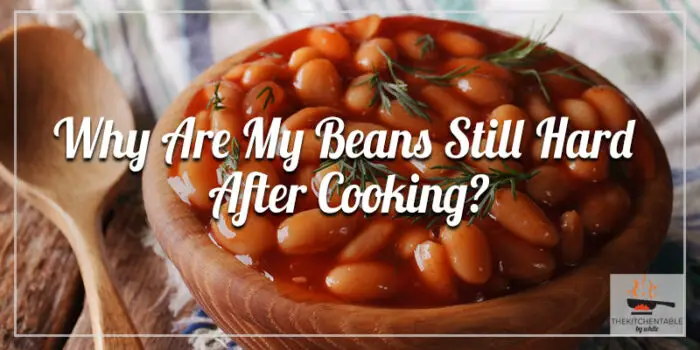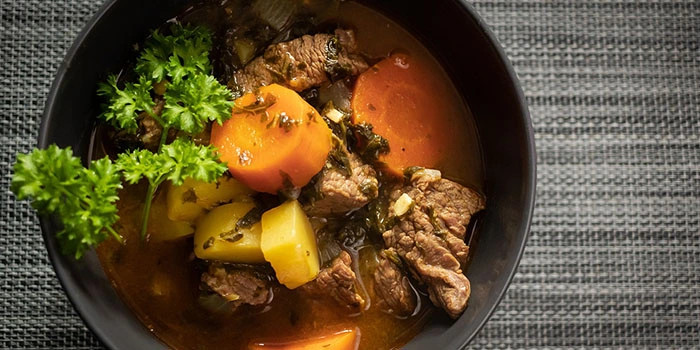Introduction
We get it.
The struggle is real. Waiting for hours to get the beans soft is frustrating. And there are times the beans might not be softened. No matter how long you wait.
There are some steps you can take to make the beans soft. And you should find out what’s keeping the beans hard.
If you’re wondering why are my beans still hard after cooking, here’s why-
The most common reason for hard beans are old and poor quality beans. Apart from that, the types of beans, the cooking time, and using hard water can keep your beans hard after cooking. Another interesting reason is adding acidic ingredients.
These are the reasons responsible for keeping your beans hard after cooking.
However, there are some other solutions to this problem. Let’s find out what to do when beans are hard after cooking.
Are you ready?
Factors That Causes Beans to Remain Hard
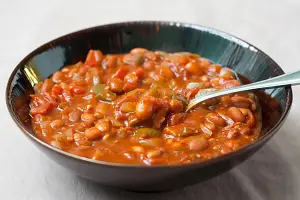
What do you think went wrong?
Well, several factors are preventing your beans from getting hard. Some of them can be fixed while the others are just tough luck. Some of the factors are-
Did You Check The Bean Quality?
The quality of a bean is the prime reason your beans are still hard after cooking. Old beans won’t soften easily. If you cook old beans, they will remain hard even after cooking.
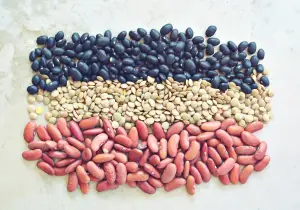
This is a problem a lot of people face. That’s because no one knows how long the beans have been in-store when buying them.
Usually, they are mixed with fresh beans to deceive a buyer. And that’s why the old beans are hard to identify from the new ones.
However, it’s ideal to avoid darker beans when you’re buying them from a market. That’s because dark beans are generally old. Old beans also grow mold and become smelly. This will help you identify the old beans from the new ones.
You Didn’t Know The Cooking Time, Did You?
If your beans are new and fresh, obviously there was a problem with the cooking time. Cooking time needs your utmost attention. Otherwise, it might make a caramel too soft or keep the beans too hard.
Beans require a lot of time to cook. And before that, they should be soaked in water for several hours.
You see cooking beans is a matter of patience. One wrong step and the beans will not be cooked properly.
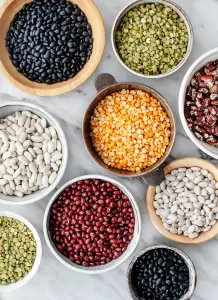
Here’s the thing-
Different types of beans require different cooking times. In general, beans require a cooking time within the range of 45 minutes to 4 hours. If you cook the beans too little, they’ll remain hard and raw.
Now, there are many kinds of beans that we love to cook. So here’s a short overview of the different beans and their required cooking time-
| Type Of Bean | Cooking Time | Amount of Water |
| Pinto | 1.5-2 hours | 3 cups |
| Kidney | 1 hour | 3 cups |
| Black | 1.5 hours | 4 cups |
| Soy | 3-4 hours | 4 cups |
| Black-eyed | 1 hour | 3 cups |
| Great northern | 1.5 hours | 3 cups |
| Navy | 1 hour | 3 cups |
| Lima | 1 hour | 3 cups |
| Adzuki | 1-1.5 hours | 4 cups |
| Green | 5 mins | 3 cups |
| Canned | 10-15 mins | 3 cups |
| Red | 45-60 mins | 3 cups |
Have You Been Using Hard Water/Chlorinated Water?
Yes, this might be surprising to know, but it’s the truth. We often have hard water running on our taps. This affects the hardness of the seeds.
Hard water has calcium in it. Calcium prevents the beans from softening. This is the reason why your beans were still hard after cooking.
Before cooking, the beans cells remain hard and glued together with other cells. When these cells are heated, the insoluble (pectin) substances that hold them together start to convert. It converts to soluble substances. This conversion causes the cells to loosen up and swell. As a result, the beans soften.
When they’re soaked in hard water, the calcium prevents the pectin conversion. So the beans remain hard even after cooking for a long time.
Chlorinated water also prevents the beans from softening. Try to use boiled water for soaking the beans if the water is chlorinated. Because cooking beans with chlorinated water is not healthy.
How Long Do You Soak The Beans?
You might be wondering if soaking helps. Of course, it does! Before cooking, you must soak the beans for 12 hours maximum. If you don’t, the beans will take a long time to cook.
With some exceptions, every recipe that includes beans must be soaked before cooking. Especially dried beans. Here’s why-
Seeds remain tender at an immature phase. You can easily eat them by cooking without much preparation.
However, when they are dried for preservation, they become hard. But these hard preserved beans cannot be cooked. So they need to be soaked for rehydration. As a result, it can be cooked easily.
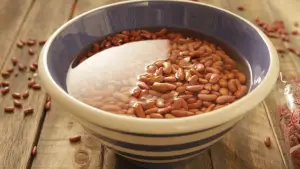
If you soak the beans for a short time, they are probably going to be hard after cooking. So proper soaking time is a big factor.
Here’s a brief overview of the different types of beans and their soaking time-
| Type Of Bean | Soaking Time |
| Pinto | 6-8 hours |
| Kidney | 4-12 hours |
| Black | 6-12 hours |
| Soy | 8-10 hours |
| Black-eyed | 6-12 hours |
| Great northern | 4-12 hours |
| Navy | 8 hours |
| Lima | 8-12 hours |
| Adzuki | 1-2 hours |
| Green | 8-12 hours |
| Canned | 4-8 hours |
| Red | 4-12 hours |
Were You Using Acids?
Just like calcium, acids also play a role in keeping the beans hard after cooking. Similarly, if you add too many tomatoes, chili will become tomatoey. Hence, acids are a big factor when cooking beans.
In case you’re wondering, here’s what happens when you add acids with beans-
Like we said earlier, heating the beans helps the starch inside the bean cells to swell. That’s when the beans start to soften. However, acids react with the starch in the cell and prevent the cell from swelling. This is why even after hours of cooking, the beans remain hard.
Therefore, use the acidic ingredients only when the beans are tender. Otherwise, it will not be possible to fix the hard beans. Acidic ingredients include-
- Onions
- Tomatoes/tomato sauce
- Wine
- Vinegar
- Lemon juice
- Any type of sauce
Now, if you think you have identified the reasons, you can proceed to the next step. Which is-
Fix Your Beans: 6 Simple Tricks
Finding out why your beans are hard after cooking is not enough. It will not help make your meal for the family. You also need to find out how to fix it.
It’s not easy to soak the beans overnight. Then cook them for another 4 hours. Not all hard beans can be saved. However, there are some fortunate cases in which you can fix the hard beans after cooking-
Method 1: Add Baking Soda
This is the number one solution to your bean problem. This solution is best for dishes that require acidic ingredients.
Because, let’s do some science here, acids prevent the beans from softening. And a basic substance like baking soda can help neutralize the acid in your dish. This allows the beans to soften up.
All you have to do is, add ¼ teaspoons of baking soda per pound of beans. This will help the beans to soften. If the beans were stored for a long time, you might need more baking soda.
If adding baking soda doesn’t work, try out any of the other methods to fix the hard beans.
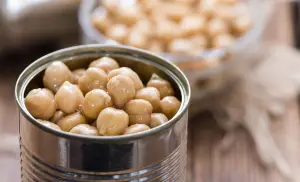
Method 2: Increase Cooking Time
If you don’t want to add baking soda, this method is for you. If you find the beans hard after cooking, you can try and extend the cooking time. This allows the beans to soften.
In this method, you have to add water to the beans and cover them. Let the beans boil for 2 minutes. Simmer them at a low temperature until they are tender. You can test the tenderness with a fork.
This method helps when the beans are not cooked for the appropriate time.
Method 3: Use Bay Leaves
If simmering the beans and adding baking soda doesn’t work, try adding some bay leaves. Bay leaves help to soften the beans. Adding these leaves might change the flavor of the beans a little. However, your entire dish will not go to waste.
Here’s what you have to do-
Add 3-4 chopped or whole bay leaves into the cooking pot. Add water if needed. Cover the pot and let the beans simmer for 10-15 minutes. If the beans are not soft, let them simmer again. The beans will then achieve the perfect tenderness.
You can add bay leaves when you’ve used too much acid or sugar to the bean.
Method 4: Salted Water
Salted water helps if you’ve soaked your beans in hard water. What’s more, salt removes the minerals of hard water, which keeps beans hard.
For this step, you have to add a tablespoon of salt for every quart of water. Cover the beans and let them boil for 2 minutes. After that check, if the beans have softened or not.
Method 5: Use A Pressure Cooker
The pressure cooker works like magic with beans. If you ever find your beans hard after cooking, put them in a pressure cooker to make them tender. Pressure cookers also save a lot of time.

For this, you’ll have to add 2-1/2 cups of water per cup of beans. If your beans are properly soaked, it’ll take about 20-30 minutes. After that, your beans will soften up just the way you wanted.
Method 6: Recook The Beans
The last resort for you would be to cook the entire dish again. Chances are none of the methods have worked. Now, this is all you can do. In this process, your first batch is going to waste.
First, you’ll have to drain the water from the cooking pot with the seeds. You’ll have to let the sauce go. After draining, wash the beans. Soak them again in warm water for another two hours or so.
When the beans are done soaking, add fresh water to the pot. And re-season them by adding all the ingredients you needed. Then cook them until the tenderness is perfect.
If this isn’t working for you, here’s a quick overview of all the methods and when to use them-
| Method | Reason |
| Adding baking soda | For acidic ingredient |
| Increasing cooking time | For insufficient cooking time |
| Using bay leaves | For acidic ingredient |
| Using salt | For hard water |
| Cooking the beans again | If no other option works |
| Using pressure cooker | For saving time |
Tips For Cooking Beans
We all make mistakes when it comes to cooking. We need to learn from them. And make sure we don’t do the same the next time we cook. Here are some tips that will help you make the most delicious beans ever-
- Some hard beans can’t be fixed
- Canned beans are easier to cook
- If your water is chlorinated, leave the beans in the water for an hour; the chlorine will evaporate.
- Always soak the beans in warm water to fasten up the process
- Undercook the acidic ingredients such as the onions or add them after the beans are tender.
- Soy, lima and navy beans are full of fiber and hard to digest.
FAQs
It’s better if you don’t. That’s because a bean contains a substance called lectin. Lectin is mostly found in undercooked and raw beans. This substance is extremely toxic and should not be consumed. Beans are nutritional only when they are cooked.
While the beans are in the pot, take a spoon of beans from the pot. Blow on the beans. If the skin of the beans peels back, the beans are ready for serving.
Cooking hard beans might take around 45 minutes to 2 hours of your time. This depends on the variety of beans you are cooking. Check the beans every 30 minutes for the result.
Signing Off
We hope we have answered your question, why are my beans still hard after cooking. We also hope this helped you solve the problem. Soaking beans in hot water will help to shorten the process the next time you cook them.
Let us know why your beans were still hard after cooking. Also mention in the comment section which of our methods helped you.
Till then keep cooking!


